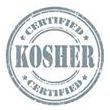Our Quality Standards
We've done the groundwork for you. We've sourced the most effective supplements and partnered with the world's leading laboratories to deliver wellness to your doorstep.
Independent Lab Partners
We have combed the world over to partner with laboratories that stay on top of the science in their respective fields and specialties. We have collaborated with laboratories in the field of dry spot urine collection, dry blood spot testing, stool analysis and salivary testing due to the convenience, accuracy and stability of these testing modalities. We are proud to collaborate with such impressive partners to bring a wide range of testing to your doorstep.

Purity and Quality Control
All supplements are not created equal. There is a difference between food-grade and pharmaceutical-grade supplementation. We strive to source the highest-quality, most bio-available ingredients. Formulations and blends are determined with the goal of yielding the best results with the fewest capsules. Ingredients are chosen to avoid adverse reactions or common allergens. Supplements are tested every step of the way from raw material to final product – we believe quality cannot be compromised.Certifications and accredations

The CAP Laboratory Accreditation Program's goal is to improve patient safety by advancing the quality of pathology and laboratory services through education, standard setting, and ensuring laboratories meet or exceed regulatory requirements.

Clinical Laboratory Improvement Amendments (CLIA) of 1988 are United States federal regulatory standards that apply to all clinical laboratory testing performed on humans in the United States, except clinical trials and basic research.

The FDA uses three terms, cleared, approved, and registered. The U.S. FDA regulates food, beverages, and dietary supplements intended for consumption in the United States by humans or other animals. Because dietary supplements are foods, dietary supplement manufacturers, packers and storage facilities are subject to FDA Food Facility Registration regulations.

Good Manufacturing Practices (GMPs) are process, procedure and documentation guidelines for operating at an exceedingly careful and professional level. A GMP system ensures that products are consistently produced and controlled according to quality standards, minimizing the risks involved in dietary supplement production and handling that cannot be eliminated through testing the final product.

For a product to be kosher certified each ingredient, food additive and processing aid used in its production must also be kosher. Additionally, the production process must be suitable for kosher requirements and therefore it must be approved by a kosher auditor. Products may be rendered non-kosher if their production lines and equipment are also used to manufacture non-kosher products.

The Non-GMO Project is a non-profit organization that independently offers GMO test verification and labeling for non-GMO products. Their verification is process-based, using traceability, segregation, and testing to ensure compliance with their standards. Manufacturers looking to receive the Non-GMO Project stamp must follow the project's standards of best practices and have product testing conducted at various stages of production, anywhere from the field to the packaging facility.

NSF independently tests, audits, certifies, trains and consults for the food, water, health science, sustainability and consumer product sectors. Recognized by regulatory agencies at the local, state, federal and international level, the NSF certification mark means that the product complies with all standard requirements.

Organic is a labeling term that indicates that the food or other agricultural product has been produced through approved methods. The organic standards describe the specific requirements that must be verified by a USDA-accredited certifying agent before products can be labeled USDA organic.
